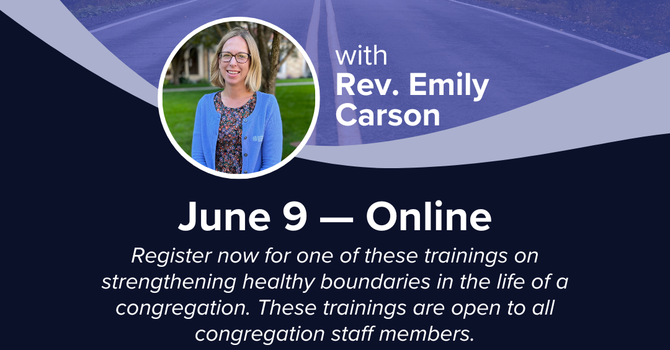All forms of sexual abuse, sexual misconduct and sexual harassment by church leaders are unacceptable within the life of the church and impede the proclamation of the gospel. The church should be a safe place where people can worship, learn, work, love and receive care in a manner that is free from sexual misconduct. Because the church is called to be a safe place, this synod intends to take whatever measures it can to help prevent sexual abuse and misconduct within the synod. The synod’s sexual misconduct policy can be found here (PDF).
Thanks to the Minneapolis Area Synod for their extensive work and for offering their own policy as a template for others.
What is misconduct?
Sexual misconduct: Federal and state laws make distinctions among various types of sexual misconduct, such as “sexual harassment,” “sexual abuse,” and “sexual assault.” Similarly, the governing documents of the ELCA define what types of sexual misconduct can result in a pastor or other rostered person facing ecclesiastical discipline. These distinctions should not concern a person who is troubled about the sexual conduct of a pastor or rostered layperson. This church is concerned about all types of sexual misconduct by these individuals, regardless of whether or how the misconduct is characterized by the law or by the governing documents of the ELCA.
Any time a minister uses their position in the church for personal sexual gratification it is a misuse of the pastoral office and a betrayal of the nature of the pastoral relationship. Any sexual misconduct committed by a rostered church leader should be reported to the appropriate synod, including, but not limited to, any sexual contact between the rostered person and a congregant, counselee, employee or volunteer. It should be noted that the synod may not be able to assume primary responsibility for addressing all allegations of sexual misconduct. For example, law enforcement authorities would have responsibility for investigating and addressing criminal allegations, while congregations would have to deal with accusations of sexual harassment by the congregation's employees. Nevertheless, the appropriate synod office should be notified of all cases of inappropriate sexual behavior in the congregation.
Any suspected sexual contact with a minor must be reported to the appropriate governmental agency as required by state laws concerning reporting of child abuse.
Report Misconduct
Synod resources:
- Synod Policies on Clergy Sexual Misconduct
- Boundary Basics
- Addiction and Substance Abuse Guidelines
- Sexually Safer Congregations materials and sample policies
- Video introduction to “Sexually Safer Congregations”
- Resources for Congregations for Sexual Misconduct Prevention and Response: A resource to assist congregations in developing a healthy climate in which sexual misconduct is not tolerated and policies to address sexual misconduct if it does occur.
- Youth Safety from Church Mutual Insurance
- “A Blessing for One Who Holds Power” by John O’Donohue
- Safeguarding God's Children resources (developed by Church Pension Group, recommended by the ELCA)
ELCA resources:
- ELCA's Sexual Misconduct Prevention
- Additional Prevention Resources from ELCA
- Safe Connections: What parishioners can do to understand and prevent clergy sexual abuse. Healthy relationships of trust and respect between laity and clergy are essential for carrying out the mission of the church. This resource can assist in creating and maintaining strong, creative and healthy relationships of integrity and safety, for the sake of our common ministry to the gospel of Christ Jesus and to the people of God.
- Healing in Congregations after clergy sexual abuse: A resource to assist synodical leaders and local congregations. This resource is offered to synodical bishops and their staffs, to other clergy and lay leaders, interims and “after pastors,” including those who will provide on-site leadership for a period of time in congregations after the incidence of clergy sexual abuse.
- An ELCA Strategy for responding to sexual abuse in the church: A resource of shared learning of synods, seminaries, congregations, colleges, social ministry organizations and the churchwide expression.
Other resources
- Reducing the Risk: Making Your Church Safe from Child Sexual Abuse by Christian Ministry Resources
This kit is produced by Christian Ministry Resources and includes:- DVD: The DVD communicates the menace child sexual abuse poses and the need for your congregation to take action. It includes testimonials of victims, congregational leaders and experts to alert congregations to the problem. It also illustrates procedures that can be used to reduce the risk of child sexual abuse and offers a convenient way to educate leaders, workers and congregations.
- Guide book: This 75-page guide offers a blueprint for a prevention plan. It provides detailed guidance on enlisting the support of key congregational leaders, formulating policies and procedures, hiring and training workers (paid and volunteer), and implementing a plan at the local congregation. The book is filled with illustrations and examples and includes sample screening forms.
- Training Manual: Effective education is the heart of a successful prevention program. The training manual provides insights and guidance on how to use the resource kit to educate and train congregational leaders, workers and the congregation.
- This kit can be purchased through Christian Ministry Resources, P. O. Box 2301, Matthews, NC 28106; Phone: 800-222-1840; www.churchlawtoday.com or www.reducingtherisk.com.
- Safe Sanctuaries: Reducing the Risk of Child Abuse in the Church by Joy Thornburg Melton
This 80-page book provides guidance to help develop policies and procedures for reducing the risk of child abuse in the church. The book defines the scope of child abuse, outlines the different types of abuse, notes the indicators of abuse, discusses the legal requirements for reporting abuse, and provides guidelines for screening and hiring workers and volunteers. The book also outlines basic procedures of safe ministry with children and youth and outlines a congregational plan for responding to allegations of abuse. Sample forms included for screening workers, requiring background checks, doing reference checks and reporting suspected abuse. A suggested training session plan for people who work with children and youth is outlined, and a bibliography of suggested resources is included.- This book (order number DR220) can be purchased from Discipleship Resources, Nashville, Tennessee; Phone: 800-972-0433; www.upperroom.org/bookstore
- Safe Gatherings: safegatherings.com
Contact the ELCA:
Phone: 773-380-2568
Email: For general questions or comments, please email the ELCA.




